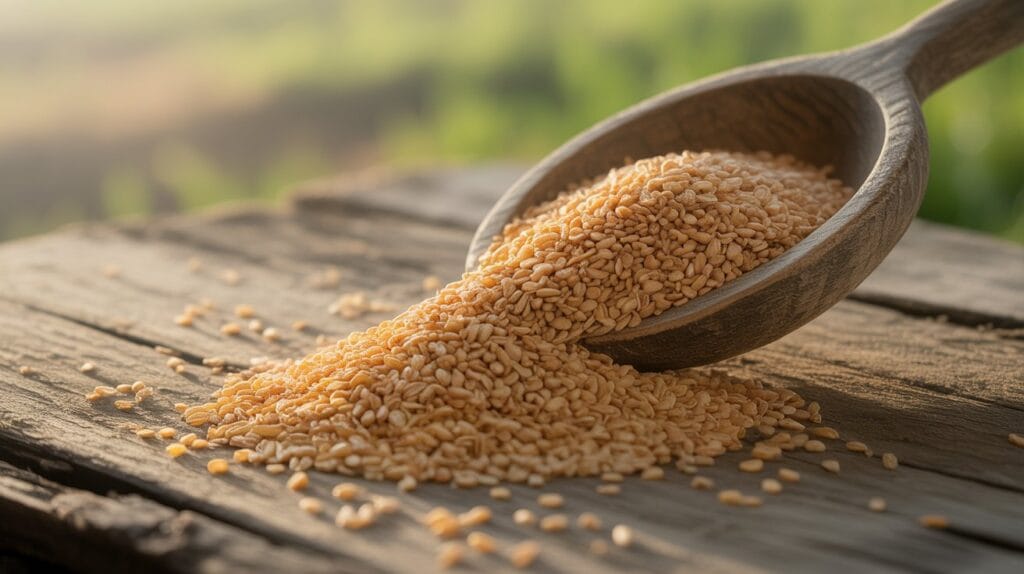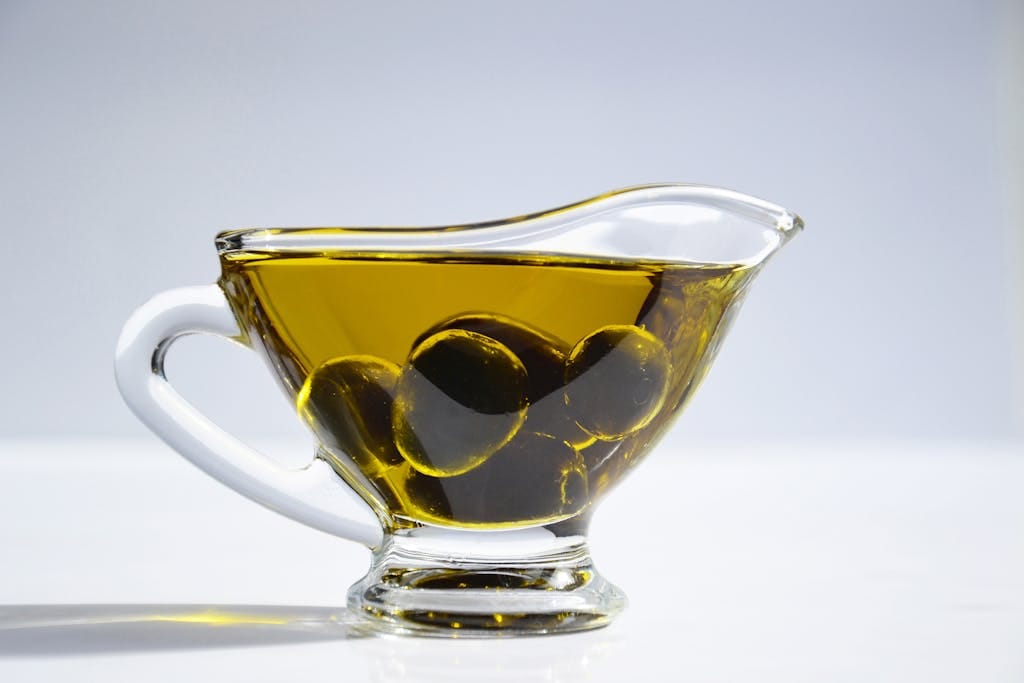Tiny alfalfa seeds are becoming more and more popular among city gardeners and health-conscious diners. These nutrient powerhouses offer a variety of health advantages and a simple way to get crunchy, fresh sprouts into your diet. Suppose you’re thinking of growing alfalfa seed for organic farming and want a quick how-to on alfalfa seed sprouting. In that case, our detailed guide will tell you everything you need to grow good-looking sprouts from these amazing little seeds.
Whether you learn the best alfalfa seeding method for you or dive into some tasty recipes that feature their versatility, it’s easy to see why so many are making space in their diets for alfalfa sprouts. Raising your own sprouts allows unfettered access to freshness and quality, as well as monetary savings compared with those available for purchase at the store.
Amazing advantages of alfalfa seeds
Alfalfa seeds are a nutritional powerhouse in sprout form–the amount of nutrients they contain is something to write home about, especially given their size. These little seeds are also packed with vitamin A, vitamin C, vitamin E, and vitamin K in addition to minerals, including iron, calcium, and potassium. The beauty, when you sprout the seeds, as with all sprouts, is that when you sprout alfalfa seeds, their vitamin and mineral content skyrockets, making these tiny plants at least 4 times more nutritionally beneficial than the dry seed!
The health benefits reach far beyond the realm of mere nourishment. These sprouts help your heart by naturally reducing cholesterol and supplying antioxidants to put out the fire of inflammation all over your body. They are a high-fiber food, which is good for maintaining a healthy digestive system, and very high in protein, making it ideal to include in vegetarian and vegan diets.
And for individuals controlling their blood sugar, alfalfa sprouts can provide natural support with chemicals that stabilize glucose metabolism. Saponins are natural compounds in Brussels sprouts that can contribute to immune system support.
How to Sprout Alfalfa Seeds at Home

Sprouting alfalfa seed into fresh sprouts can be done simply and quickly right in your own kitchen with minimal equipment and very little space what You’ll Need: High-quality seeds for alfalfa sprouts, A glass jar, Cheesecloth or a sprouting lid, and Clean water.
Begin by choosing certified organic alfalfa sprout seeds from a reliable source. The quality of these seeds matters to some extent when you’re sprouting, simply because poor seeds aren’t going to germinate successfully or could contain bad bacteria. Find seeds that are marked for sprouting, not field planting.
Step-by-Step Sprouting Process
Start by placing two tablespoons of alfalfa seeds in your clean glass jar. Rinse the seeds well under cool water and then cover them with three times their volume of clean, filtered water. Snap the lid onto the jar and cover with cheesecloth attached with a rubber band; allow seeds to soak for 8-12 hours.
Allow all the water to drain (strain) completely through the cheesecloth. After 12 hours, rinse the seeds with fresh water one more time and drain them before turning the jar on its side in a dark place. The angled position provides good air circulation so that the sink dries perfectly without water marks.
Wash and sieve the seeds twice daily, every morning and evening over the next 3-5 days. This growing time is done out of direct sunlight. Tiny white roots will emerge within 24-48 hours, followed by green sprouting leaves.
Creating Optimal Growing Conditions for Alfalfa Seeds
The temperature is one of the most important factors for successful alfalfa establishment. Keep temperatures between 65 -75°F for optimal performance. Cold temperature inhibits the growth, but excessive heat also promotes bacterial growth and spoils it.
It helps you eliminate mold and bacterial problems, preventing them from re-sprouting on your sprouts. Never allow the seeds to sit in standing water, and make certain there is good air movement around your sprouting container. Ady purchased sprout trays. Some people feel limited by these jars and look for a more specialized sprouting tray because it can drain better than their traditional jar method.
Tasty Uses for Fresh Alfalfa Sprouts
Alfalfa sprouts provide a superb crunchy texture and mild, nutty flavor to many meals. Its flexibility renders it suitable for raw or light cooking needs.
Simple Salad Combinations
Mix Sprouts. Adding fresh alfalfa sprouts to your salad lends finger-licking freshness. Mix up some bite-sized mixed greens, cherry tomatoes, sliced cucumbers, and toss in any favorite dressing for an amazing salad with a kick! The sprouts add textual intrigue, and their nutritional value is off the charts. Or toss with avocado and lemon vinaigrette for a light, healthy lunch.
Slip alfalfa sprouts into chicken or tuna salad for a protein punch. The crunchy taste enhances creamy dressings and is an excellent source of vital minerals and vitamins for your diet.
Sandwich and Wrap Ideas
Elevate everyday sandwiches by adding ample fresh sprouts to your favorite fillings. They are especially good in meatless sandwiches, contributing substance without heaviness. For a filling meal, put them on wraps with hummus, roasted vegetables, and fresh herbs.
Alfalfa sprouts are a tasty inclusion in breakfast sandwiches, adding fresh texture to eggs, cheese, and other morning musts. Their delicate taste won’t compete with other toppings, as it provides important nutrition to kick-start your morning.
Smoothie Integration
Toss a small handful of fresh alfalfa sprouts into your smoothie for added nutrition. Their mild taste is completely lost when mixed with fruits like bananas, mangoes, or berries. This is a way of getting in more nutrient power without altering taste/texture much.

Troubleshooting Common Growing Issues
Even the most knowledgeable sprout growers sometimes have trouble growing Alfalfa Seed. If you know the common issues and how to solve them, you can’t go wrong with sprouting.
Preventing and Managing Mold Growth
Mold is a fuzzy, colored growth on the seed or sprout and indicates contamination. Avoid the mold by ensuring good drainage, as air circulation is important, and use clean equipment. If you see any icky smells or visible mold, throw the whole batch out.
Some white, hair-like formations on sprouting seeds are actually normal root hairs and not mold. These delicate structures look uniform and don’t have the fuzzy, random appearance of mold growth. When in doubt, rely on your sniffer—healthy sprouts smell fresh and clean.
Addressing Uneven Sprouting
If seeds germinate at different rates, those that fail may have been poorly prepared for soaking, or the seed quality may not be good. Use fresh, viable alfalfa seeds for sprouting and a longer soaking if necessary. Seeds over 10 years old may need an additional soaking for good germination.
Temperature variations induce irregular sprouting as well. Keep the temperature stable from start to finish, and don’t put your sprouting containers near a heater or draft.
Frequently Asked Questions
How many pounds of alfalfa seed per acre are required for field planting?
The average commercial plantings of alfalfa seeds need 15-25 lbs/acre for soil conditions and the type of seeding. This is a high recovery rate that is much higher than any sprouting applications in which only small amounts are utilized.
Can I sprout Roundup Ready alfalfa?
Though Roundup Ready alfalfa seed is available to agribusiness, organic non-GMO seeds are what you want to use for sprouting and eating. When starting, pick seeds specifically designated for sprouting so they will be safe and of good quality.
How much does alfalfa seed cost?
Price varies by quality and quantity. Small sprouting quantities run from $2-5, to commercial amounts like afalfa seed – a bag of 50 lbs, which varies between $100-300 depending on the variety and market.
How long do alfalfa seeds last?
If stored well, alfalfa seeds can last for 2 to 3 years in a cool and dry place. Seeds are best stored in a dark, air-tight container to maintain viability.
How long do fresh sprouts keep?
Fresh alfalfa sprouts are crisp and should last 5-7 days when kept in a breathable container inside the refrigerator. Be sure to rinse them well, gently, and blanch; they have lots of moisture, and you don’t need extra.
Alfalfa Growth Begins Now
Homegrown alfalfa sprouts offer a fresh, healthy addition to your diet and help you bond with your food. It’s an easy process that doesn’t take much of your effort but yields the highest nutritional reward through these vitamin-rich greens.
Begin simply with a single jar and a couple of tablespoons of quality alfalfa seeds for sprouting. Learn the basics and then experiment later with bigger quantities or other sprouting techniques once your skills improve. The pleasure of harvesting fresh sprouts from my kitchen counter makes the slight effort entirely worth it to me.
Note: Alfalfa plant seed germination success is based on cleanliness, drainage, and care. With experience, you’ll gain a feel for the procedure, and it will not only deliver consistently excellent results. Healthy eating becomes a whole lot easier and more exciting with the purchase of a bag of your homegrown alfalfa sprouts.



